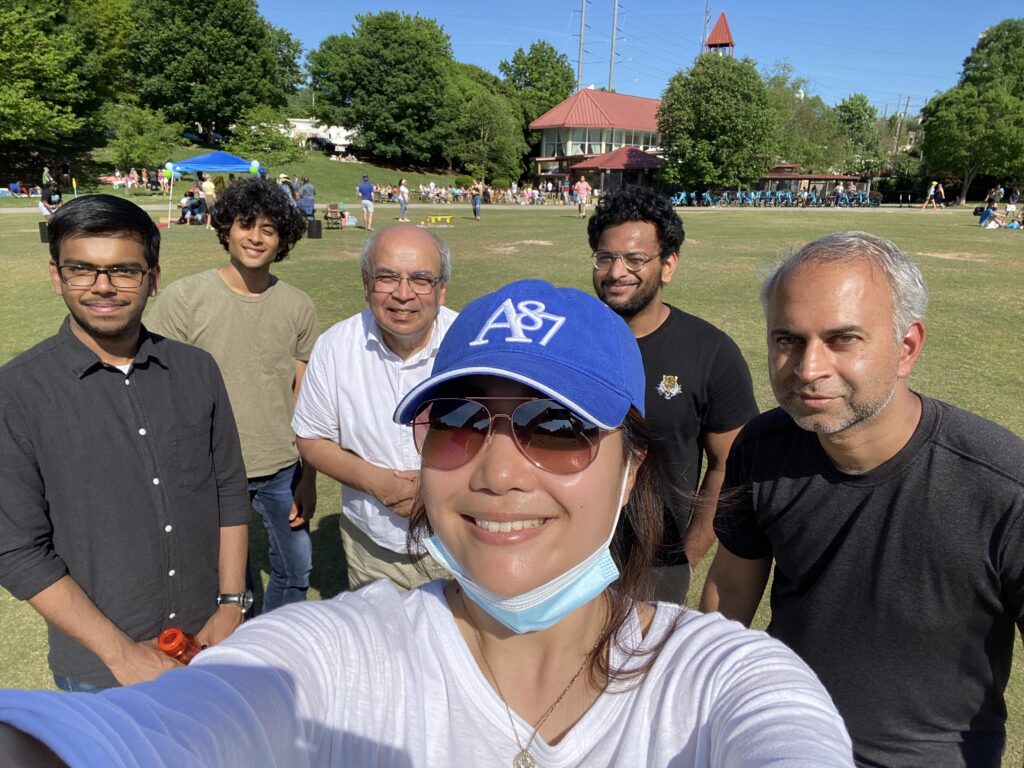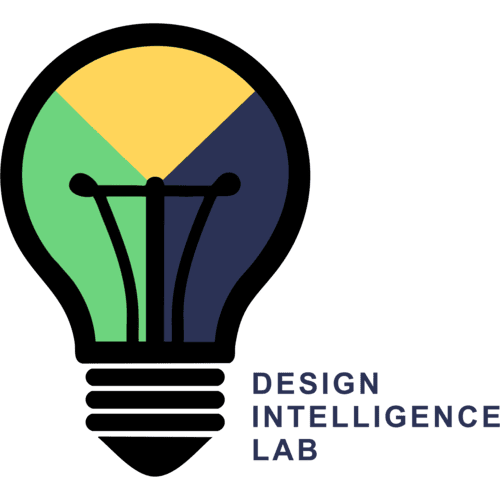The paper “Multifunctional and Domain Independent? A Meta-Analysis of Case Studies of Biologically Inspired Design”, written by Ashok Goel and William Hancock, has just been accepted into the Design Science Journal, the flagship journal of the Design Research Society! More information about the publication can be found here: http://dilab.gatech.edu/publications/multifunctional-and-domain-independent-a-meta-analysis-of-case-studies-of-biologically-inspired-design/.
Category Archives: News
DILab Picnic at Piedmont Park
We had our DILab picnic at Piedmont Park on Saturday, May 1st. We haven’t met as a group for more than a year, so it was so nice to meet again. The weather was perfect for a picnic. We had so much fun talking, having some snacks, and playing cards and badminton!

New Podcast on Jill Watson and SAMI
Links:
- On the New York Times: https://www.nytimes.com/paidpost/verizon-5g/networked-the-5g-future.html
- On Apple Podcasts: https://podcasts.apple.com/us/podcast/networked-the-5g-future/id1533841767
- On Stitcher: https://www.stitcher.com/podcast/t-brand-studio/networked-the-5g-future
- On Spotify: https://open.spotify.com/show/3cjfq1REoqjCzSMksyv0d4?si=7xlPdMvFT3-GvDqb9Deguw
- SmartLink that will direct users to a platform they have on their phone, based on device: https://link.chtbl.com/Networked
Hiring a full-time research scientist and a half-time post-doc
Date: August 31, 2020
Georgia Tech’s Design Intelligence Laboratory (http://dilab.gatech.edu/) in the School of interactive Computing is seeking two Research Scientists.
1. Full-time Research Scientist I in AI/ML
Lead software developer for the Jill Watson research team (https://emprize.gatech.edu/) as part a new industry/academia collaborative project sponsored by the NSF Convergence Accelerator program. The RS will work with Georgia Tech’s Design & Intelligence Laboratory, C21U, EduWorks, and other partners, focusing on developing AI question answering agents. Job requires knowledge of AI, ML and NLP techniques, and experience with Python, SQL, Linux, and JavaScript. The RS will also help coordinate and document the project. This work can be done remotely but will require intense teamwork. Minimum qualifications: B.S. or M.S. with 5 years of experience in software development. Contact: Professor Ashok Goel at goel@cc.gatech.edu
2. Half-time Post-Doctoral Research Scientist II in Participatory and Human-Centered Design
Postdoctoral research scientist for the Jill Watson research team (https://emprize.gatech.edu/) as part of a new industry/academia collaborative project sponsored by the NSF Convergence Accelerator program. The RS will work with Georgia Tech’s Design & Intelligence Laboratory, C21U, EduWorks, and other partners, focusing on participatory and human-centered design of AI question answering agents. The RS will also help coordinate and document the project. This work can be done remotely but will require intense teamwork. Minimum qualifications: Ph.D. Contact: Professor Ashok Goel at goel@cc.gatech.edu
Congratulations to DILab alumni Mukundan Kuthalam for his recent acceptance to the Computer Science PhD program at Northwestern University!
Mukundan just graduated from MSCS this semester and will be pursuing his PhD degree in Computer Science at Northwestern University, starting Fall 2020. Mukundan worked on the Errol project during his time at DILab. Congratulations Mukundan! We are excited to see what the future holds for you 🙂
Congratulations to DILab alumni Varsha Achar for starting her new job at Facebook!
Varsha completed her MSCS degree from Georgia Tech in 2019. Varsha was a principle developer on the Jill Watson project during her time here at DILab. Congratulations to Varsha and we are excited to see what the future holds for you! 🙂
News article on AI application in the fight against COVID19, featured VERA project
A recent news article we collaborated on has been published. The news article included our very own VERA (Virtual Experimentation Research Assistant) as one of the five AI applications in the fight against COVID19. Check it out here: https://www.onlineengineeringprograms.com/features/ai-fighting-covid-19
Two papers accepted at Learning @ Scale 2020!
We have two papers accepted at Learning@Scale 2020. The first paper explores students’ perspectives on affect-sensitive technology in large educational context, led by PhD student Qiaosi Wang in collaboration with Shan Jing, Dr. David Joyner, Dr. Lauren Wilcox, Hong Li, Dr. Thomas Ploetz, and Dr. Betsy DiSalvo. The second paper is a collaboration project with Dr. David Joyner that explores social presence in online educational context, co-authors include Qiaosi Wang, Suyash Thakare, Shan Jing, Dr. Ashok Goel, and Dr. Blair MacIntyre.
Paper accepted at AIED 2020 on scientific modeling using large scale knowledge!
New paper accepted at AIED 2020, led by PhD student Sungeun An, Co-authors Robert Bates, Jen Hammock, Spencer Rugaber, Emily Weigel and Ashok Goel. This paper explores scientific modeling using large scale knowledge.
